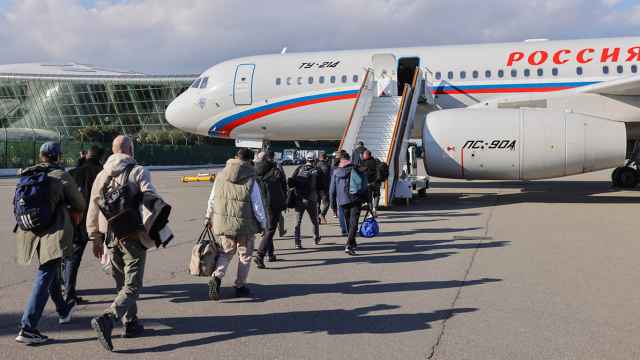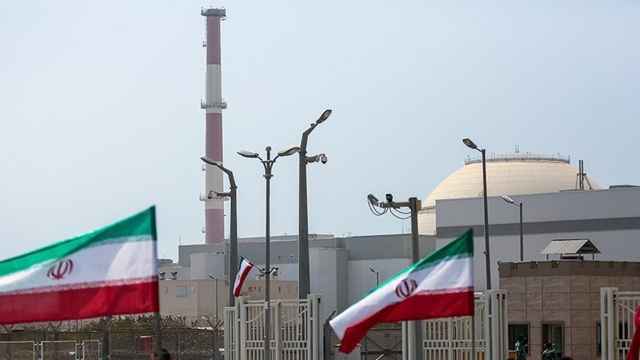1. Russia’s sovereign Reserve Fund dries up after several years of budget deficit
What happened:
Russia’s sovereign Reserve Fund, which was built up over years with profits from oil exports, is empty and has ceased to exist, the Finance Ministry announced on Tuesday. The Russian government still has $65 billion in a second sovereign fund to cover planned budget shortfalls, but it might not last long.
— Russia started saving money in the period when oil prices were high, between 2000 and 2011, on the initiative of Alexei Kudrin, Putin’s most trusted liberal economist and Finance Minister. At its high point in September 2008, the Reserve Fund held $142 billion.
— By 2014, when oil prices had plummeted and Western sanctions had put an end to economic growth, there was only $87 billion left. Budget shortfalls grew from 0.5 percent of GDP in 2014 to 3.5 percent in 2016 and ate up the remaining reserves.
— Russia still has $65 billion in the National Wealth Fund (NWF). It was established in 2008 to help finance Russian pensions, but was actually used to fund government-backed investment projects. Now this $65 billion is the only fund left to cover budget deficits, estimated at $21.8 billion in 2018.
— Oil prices are rising again. On Thursday, Brent broke through $70 for the first time since 2014. This gives reserves a chance to recover. In 2018, the Finance Ministry is planning to purchase $35 billion of foreign currency reserves, which could go to the NWF.
— Spending is also increasing, however, as the government is coming up with costly projects in the run-up to the presidential election.
Why the world should care:
The reserve funds are a backup for the riskier parts of state budget spending, like international military operations.
2. Russian internet entrepreneur launches $5 billion ICO to challenge global payment systems
What happened:
The messaging app Telegram, boasting 150 million users worldwide, is reportedly planning to launch its own cryptocurrency with a $5-billion ICO in March 2018. The ultimate goal is to build a blockchain payment system that can rival Visa and Mastercard.
— Telegram owner Pavel Durov was the founder of Russia’s largest social network Vkontakte, which now has 97 million monthly users.
— In 2014, Durov sold Vkontakte and left Russia to found Telegram, an encrypted messaging app which has made a name for itself by refusing to hand over user data to government agencies.
— In Russia, Telegram has been under constant threat of being shut down for refusing to cooperate with the authorities. Telegram is also the most popular messaging app in Iran with 40 million users. It was blocked after mass protests erupted in the country in December 2017, but most users continued using the app through VPN.
Why the world should care:
Telegram is arguably the most successful internationally recognized product of Russian origin in the world right now. Its reputation as a secure app with a zero-tolerance policy towards government demands could now help promote it as a secure payment system.
In Russia Telegram has become a distribution channel for a variety of media, including those who support and oppose the Kremlin. According to Durov, the app has about 10 million users in Russia, rivaling Facebook’s share in Russia (15 million monthly users), and it is widely used among Russia’s business and political elite.
3. How a fortnight of New Year’s holidays hurts the Russian economy
What happened:
Russia is still waking up from its long New Year celebration. The official holiday is at least 10 days long — this year, from Dec. 29 to Jan. 9. In fact, the entire country stops its normal working schedule from about Dec. 20 to Jan. 15.
Western-oriented Russians love speculating about the economic damage the long holidays cause. Every year, FBK consulting estimates the negative economic impact of the break at around 1.5 percent of GDP.
The solution, it might seem, would be for Russia to just cancel the holidays to boost the economy. But the figures say that the main problem is not the long break itself. On average, Russians rank among the world’s top-5 for hours spent at work. It is their low labor productivity that sends these hours into the trash can.
Why the world should care:
If you tried to get in touch with Russians to do business after Dec. 29 and received no response, you shouldn’t be surprised. For better results, try send a reminder next week.
A Message from The Moscow Times:
Dear readers,
We are facing unprecedented challenges. Russia's Prosecutor General's Office has designated The Moscow Times as an "undesirable" organization, criminalizing our work and putting our staff at risk of prosecution. This follows our earlier unjust labeling as a "foreign agent."
These actions are direct attempts to silence independent journalism in Russia. The authorities claim our work "discredits the decisions of the Russian leadership." We see things differently: we strive to provide accurate, unbiased reporting on Russia.
We, the journalists of The Moscow Times, refuse to be silenced. But to continue our work, we need your help.
Your support, no matter how small, makes a world of difference. If you can, please support us monthly starting from just $2. It's quick to set up, and every contribution makes a significant impact.
By supporting The Moscow Times, you're defending open, independent journalism in the face of repression. Thank you for standing with us.
Remind me later.






